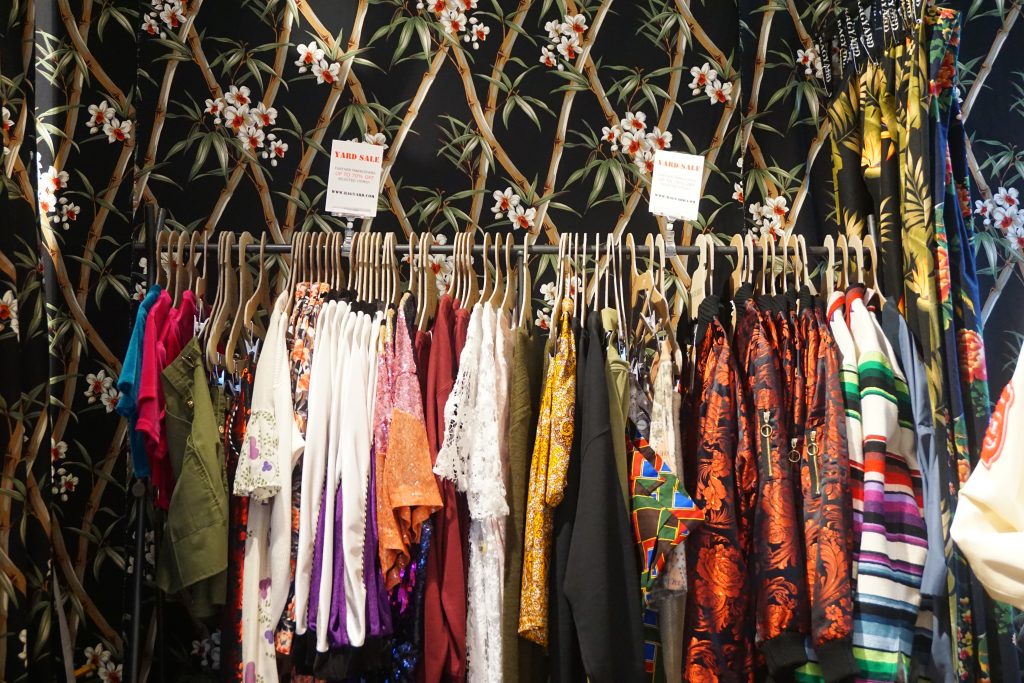The fashion industry is undergoing a transformation as consumers become more conscious of the impact their choices have on the environment, workers, and society. Ethical clothing brands are at the forefront of this movement, offering stylish, high-quality apparel while prioritizing sustainability, fair labor practices, and ethical sourcing.
This article explores what makes a brand ethical, highlights some of the best ethical clothing brands in the market, and explains why choosing ethical fashion is a vital step toward a better future.
What Are Ethical Clothing Brands?
Ethical clothing brands are companies that prioritize transparency, sustainability, and fairness in their operations. These brands often adhere to practices such as:
- Using eco-friendly and sustainable materials.
- Ensuring safe working conditions and fair wages for workers.
- Minimizing waste and carbon emissions throughout the production process.
- Avoiding harmful chemicals and dyes in their products.
Unlike fast fashion, which focuses on producing large quantities of low-cost clothing, ethical brands aim to create timeless, durable pieces that have a minimal negative impact on the planet.
Why Ethical Fashion Matters
The fast fashion industry has long been criticized for its environmental degradation, exploitation of workers, and unsustainable practices. Ethical fashion addresses these issues in several ways:
1. Reducing Environmental Impact
The fashion industry is one of the largest polluters globally, contributing to water waste, greenhouse gas emissions, and landfill overflow. Ethical brands focus on using organic or recycled materials, reducing water usage, and creating clothing that lasts longer to combat these problems.
2. Promoting Fair Labor Practices
Many garment workers in developing countries face low wages, unsafe working conditions, and exploitation. Ethical brands ensure their workers receive fair wages and work in safe environments, fostering social equity.
3. Encouraging Conscious Consumerism
Choosing ethical clothing helps shift the demand away from fast fashion, encouraging the industry to adopt sustainable and fair practices.
Top Ethical Clothing Brands to Know in 2024
Here’s a list of standout ethical clothing brands that combine style, quality, and sustainability:
1. Patagonia
- Why It’s Ethical: Patagonia is a pioneer in sustainable fashion, using recycled materials and committing to reducing its carbon footprint. The brand also donates 1% of its sales to environmental causes.
- Popular Products: Outdoor wear, fleece jackets, and activewear.
2. Everlane
- Why It’s Ethical: Everlane emphasizes “radical transparency,” revealing the true costs of production and ensuring fair wages for workers.
- Popular Products: Minimalist staples like t-shirts, jeans, and shoes.
3. Eileen Fisher
- Why It’s Ethical: This brand focuses on circular fashion, encouraging customers to recycle their old garments for resale or recycling.
- Popular Products: Timeless, elegant designs made from organic fabrics.
4. Reformation
- Why It’s Ethical: Reformation uses sustainable materials and operates a carbon-neutral business model. The brand also publishes its sustainability practices openly.
- Popular Products: Trendy dresses, blouses, and wedding guest outfits.
5. People Tree
- Why It’s Ethical: A pioneer in fair trade fashion, People Tree collaborates with artisans and farmers to create sustainable clothing while supporting local communities.
- Popular Products: Handwoven fabrics, casual wear, and workwear.
6. Thought Clothing
- Why It’s Ethical: Thought Clothing uses natural fabrics like bamboo and hemp while promoting slow fashion principles.
- Popular Products: Comfortable everyday clothing, socks, and accessories.
7. Pact
- Why It’s Ethical: Pact creates organic cotton clothing that is Fair Trade Certified, ensuring environmental and social sustainability.
- Popular Products: Loungewear, underwear, and basics.
8. Veja
- Why It’s Ethical: Known for its sustainable sneakers, Veja uses organic cotton, wild rubber, and upcycled materials.
- Popular Products: Trendy, eco-friendly sneakers.
9. Stella McCartney
- Why It’s Ethical: Stella McCartney is a luxury brand committed to cruelty-free, vegan fashion. The brand also uses innovative materials like Mylo leather (made from mushrooms).
- Popular Products: Designer bags, shoes, and ready-to-wear collections.
10. Kotn
- Why It’s Ethical: Kotn works directly with farmers in Egypt to create high-quality cotton products while ensuring fair wages and ethical labor practices.
- Popular Products: Classic tees, loungewear, and home goods.
How to Identify Ethical Clothing Brands
When shopping for ethical fashion, it’s important to evaluate brands based on their practices. Look for:
1. Certifications
- Fair Trade Certified: Ensures fair wages and safe working conditions.
- Global Organic Textile Standard (GOTS): Verifies the use of organic materials.
- Bluesign: Ensures sustainable production with minimal environmental impact.
2. Transparency
Ethical brands are open about their supply chain, materials, and practices. Check their website for detailed information.
3. Materials Used
Look for organic cotton, bamboo, hemp, recycled polyester, and other eco-friendly fabrics. Avoid synthetic fibers like polyester and nylon unless recycled.
4. Business Practices
Brands committed to ethical fashion often engage in sustainable practices, such as reducing packaging, recycling products, and offsetting carbon emissions.
The Challenges of Ethical Fashion
While ethical clothing brands offer significant benefits, they also face challenges:
- Higher Costs: Sustainable materials and fair labor practices make ethical fashion more expensive than fast fashion.
- Limited Availability: Ethical brands often operate on a smaller scale, limiting their global reach.
- Greenwashing: Some brands falsely claim to be sustainable without implementing meaningful practices.
Consumers must be vigilant and research thoroughly before purchasing.
How to Support Ethical Fashion
Supporting ethical clothing brands doesn’t mean you have to overhaul your entire wardrobe. Here are some practical ways to embrace ethical fashion:
- Shop Mindfully: Buy less, but buy better. Focus on timeless, versatile pieces.
- Secondhand Shopping: Thrift stores and resale platforms like Poshmark and Depop offer sustainable options.
- Repurpose Old Clothes: Upcycle or repair worn-out clothing instead of discarding it.
- Educate Yourself: Stay informed about which brands are making genuine efforts toward sustainability.
The Future of Ethical Fashion
Ethical clothing is not just a trend—it’s the future of fashion. As consumer demand for transparency and sustainability grows, more brands are likely to adopt ethical practices. Innovations in materials, such as lab-grown fabrics and bio-based textiles, will further revolutionize the industry.
Governments and organizations are also stepping in, enforcing stricter regulations to ensure fair practices and environmental sustainability. Ethical fashion is on track to become the norm rather than the exception.
Conclusion
Ethical clothing brands are paving the way for a more sustainable and equitable fashion industry. By choosing to support these brands, consumers can reduce their environmental footprint, promote fair labor practices, and inspire positive change.

